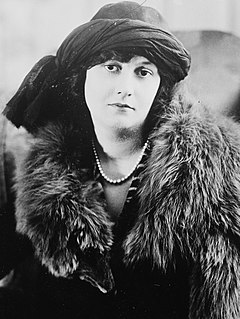A Quote by Arthur Schopenhauer
How is it possible that suffering that is neither my own nor of my concern should immediately affect me as though it were my own, and with such force that is moves me to action?
Related Quotes
Had I no eyes but ears, my ears would love. That inward beauty and invisible; Or were I deaf, thy outward parts would move each part in me that were but sensible: Though neither eyes nor ears, to hear nor see, yet should I be in love by touching thee. 'Say, that the sense of feeling were bereft me, and that I could not see, nor hear, nor touch, and nothing but the very smell were left me, yet would my love to thee be still as much; for from the stillitory of thy face excelling comes breath perfum'd that breedeth love by smelling.
I think I have fallen in love and I believe the woman in question, though she has not said so, returns my feelings. How can I be sure when she has said nothing? Is this youthful vanity? I wish in some ways that it were. But I am so convinced that I barely need question myself. This conviction brings me no joy.[…]I am driven by a greater force than I can resist. I believe that force has its own reason and its own morality even if they may never be clear to me while I am alive.
Outward objects cannot take hold of the soul, nor force their passage into her, nor set any of her wheels going. No, the impression comes from herself, and it is her own motions which affect her. As for the contingencies of fortune, they are either great or little, according to the opinion she has of her own strength.
For Christians above all men are forbidden to correct the stumblings of sinners by force...it is necessary to make a man better not by force but by persuasion. We neither have authority granted us by law to restrain sinners, nor, if it were, should we know how to use it, since God gives the crown to those who are kept from evil, not by force, but by choice.
I have long been settled in my own opinion that neither Philosophy, nor Religion, nor Morality, nor Wisdom, nor Interest, will ever govern nations or Parties, against their vanity, their Pride, their Resentment, or Revenge, or their Avarice, or Ambition. Nothing but Force and Power and Strength can restrain them.
Just what is the civil law? What neither influence can affect, nor power break, nor money corrupt: were it to be suppressed or even merely ignored or inadequately observed, no one would feel safe about anything, whether his own possessions, the inheritance he expects from his father, or the bequests he makes to his children.
O God, I confess I am not worthy to rock that little babe or wash its diapers, or to be entrusted with the care of a child and its mother. How is it that I without any merit have come to this distinction of being certain that I am serving thy creature and thy most precious will? Oh, how gladly will I do so. Though the duty should be even more insignificant and despised, neither frost nor heat, neither drudgery nor labor will distress me for I am certain that it is thus pleasing in thy sight.
The only thing that matters is to have charm and expression. Then comes that horrible gnawing doubt of our own magnetism. Is it possible that, though we are not lovely, we are not irresistible either? That we will have to go through life belonging neither to the triumphantly beautiful nor to the triumphantly ugly?
We are neither obstinately nor wilfully to oppose evils, nor truckle under them for want of courage, but that we are naturally to give way to them, according to their condition and our own, we ought to grant free passage to diseases; and I find they stay less with me who let them alone. And I have lost those which are reputed the most tenacious and obstinate of their own defervescence, without any help or art, and contrary to their rules. Let us a little permit nature to take her own way; she better understands her own affairs than we.
I believe in God. Nobody made me believe; I don't think you can or should try to force someone to believe something. And even though my parents taught me stuff about God and read Bible stories to me from as early as I can remember... it was my choice to become a believer in Him. The way I see it, putting our faith in God is something that each person has to come to on his or her own. It's your own personal relationship with Him; a bond that's as unique as a fingerprint.
When I came right out of college I remember someone pulling me aside and telling me how to exactly fit in. How to wear my hair, what clothes I should wear, even how I should talk and wave or not wave or hold my hands. I wish I never had that conversation. It held me back for like two years and it took me a while to learn this myself, but the idea that you are your own brand, and you are your own person.









































